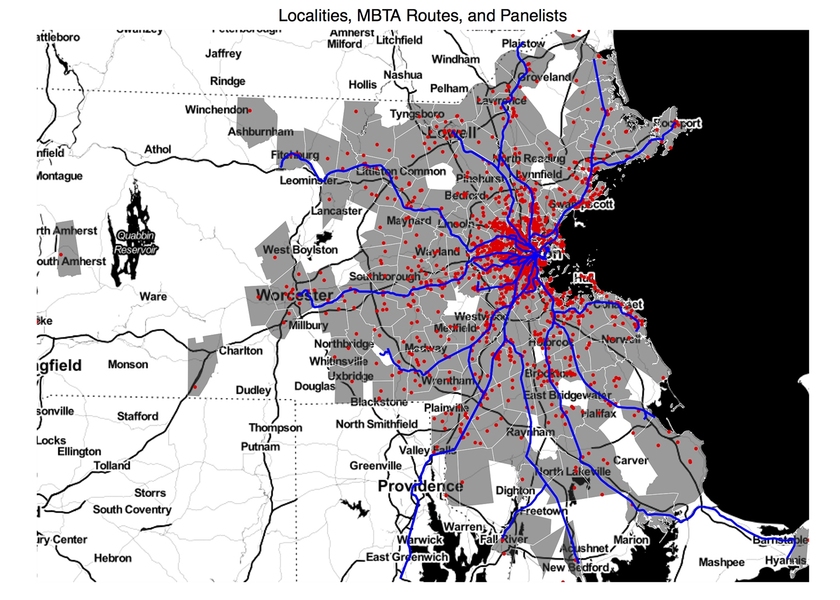“All politics is local,” Thomas “Tip” O’Neill famously said. If the former Speaker of the House were alive today, chances are he would approve of the work of Justin de Benedictis-Kessner. Not only does the doctoral candidate in political science focus on local politics, he does it in the very city O’Neill represented for more than three decades.
Why go local?
“Lots of things we care about, like accountability, can happen at the local level in a way that would be a big deal if they happened at the national level,” de Benedictis-Kessner explains. “But at the federal level, those things harder to observe. Locally, there are more elected officials, and more elections — they’re happening all the time. And there’s a ton of money being spent by local governments. Local politics is a great way to study things we care about like partisanship and electoral behavior.”
Take off-cycle elections — those held in odd-numbered years, or in the spring. In one of his papers, on election timing and the incumbency advantage (voters’ tendency to re-elect someone already in office), de Benedictis-Kessner shows that these have a much lower incumbency advantage than on-cycle elections.
“Think about who’s showing up: people who care about the outcome. In on-cycle local elections, there are more people who might not know as much about what they’re voting for. They might be showing up to vote for president and members of Congress, and by the time they get down to the local races on their ballot, like mayors, they’re going to vote based on things like name recognition. So an incumbent is going to have a much bigger advantage there than in an off-cycle election.”
To study the incumbency effect, de Benedictis-Kessner focuses on very close results — that is, elections where someone barely wins and someone barely loses. “You can say those candidates are pretty similar,” he explains, “but one of the candidates will go on to be the incumbent in the next election. When they run again, the incumbent does much better than the person who barely lost the first time; it’s not that they’re a better candidate, it’s just that they have the advantage of being an incumbent.” This isn’t great for accountability in those on-cycle elections.
In a paper he wrote with assistant professor of political science Christopher Warshaw, (forthcoming in the Journal of Politics), de Benedictis-Kessner examines partisanship in local politics. “Normally we’d think party doesn’t matter,” he says. “There’s no Republican way to lay a sewer and no Democratic way to pave a road. But we show that it does matter. Republicans and Democrats conduct city policy differently: Democratic mayors have higher expenditures in certain areas, and they fund those expenditures by taking on more debt and paying more interest on that debt. This teaches us something about local politics, but also about how powerful partisanship is.”
De Benedictis-Kessner, a summa cum laude graduate of the College of William and Mary, where he studied government and psychology, applies his “psych mind” when assessing hypotheses about how people think and act. In a recent experiment, he used Boston’s public transportation system, the MBTA, to explore public opinion and accountability attribution.
“The MBTA is a government-funded service people use every day, but they don’t know whom to blame or credit for its performance,” he says. In the experiment, he varied the information he provided subjects. To some he explained various politicians’ responsibility for funding and decision making. This made subjects connect performance to their judgment of those politicians.
“But when I provided other, factually correct info — say, how cold weather can affect trains in a negative way — people were unable to connect performance to their judgments about politicians. Even though people love to complain about the MBTA, it would be hard to get elected officials to respond.”
When he’s not writing his dissertation, the California native is coaching the men’s lightweight rowing team. “It’s a cool way to step outside my ‘political science brain’ and think about something totally different,” he says, “but at the same time it’s still teaching. And it’s made me a much better teacher, having to explain something that’s technical and physical, like how to coordinate your body’s movements to become a good rower.”
De Benedictis-Kessner is passionate about teaching MIT undergraduates. “It shows me you can get excited about politics in many different ways. Some students get excited because there’s cool data. Another group gets excited about the policy implications of the data. They might be doing research in environmental engineering and coming up with a cool invention to help combat climate change, but what they don’t know unless they’re taking a political science class is how policy will be enacted that might relate to their research.”
“In class,” he adds, “they see they’re not doing engineering in a vacuum, they’re doing it in a world where someone has to pay attention to the research and turn it into policy.”







